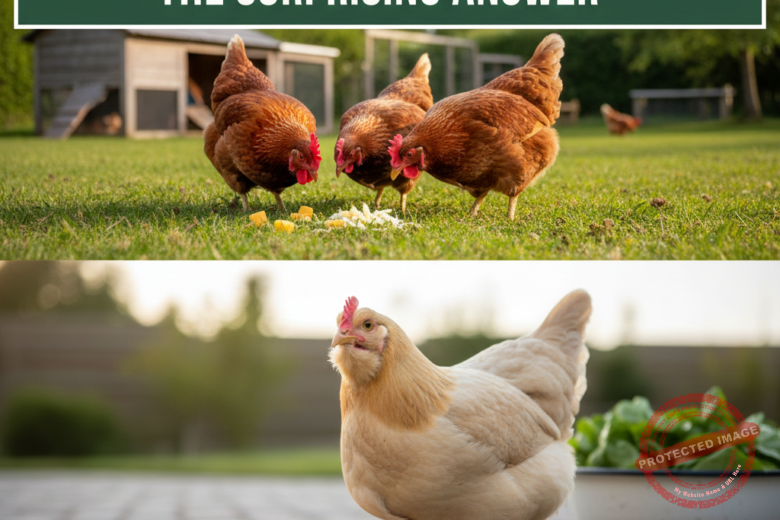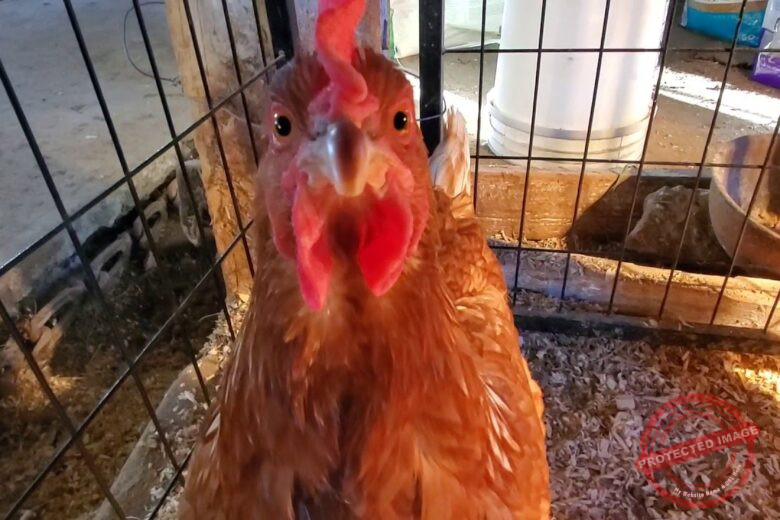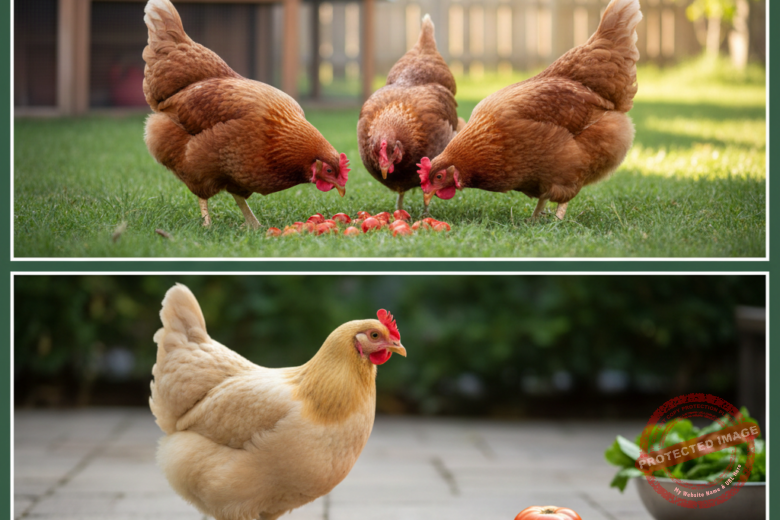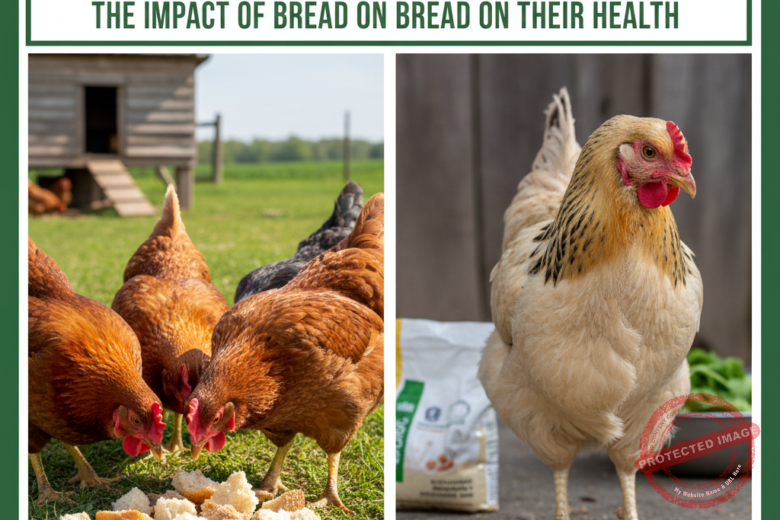If you’ve ever walked out to your chicken coop with a bowl of leftovers and wondered, “Can chickens eat rice?”, you’re not alone. I’ve been there too, standing with a handful of cooked rice after dinner, debating whether to toss it to the girls or not. You’d think chickens, being the little garbage disposals they are, could handle just about anything. But with rice, things get a little tricky. There are old myths, half-truths, and a lot of confusion floating around. So let’s clear it up, farm-style—real, honest talk about rice and chickens.
The truth is, chickens can eat rice, but it depends on what kind and how it’s prepared. Some folks say rice swells in their bellies and causes problems. Others swear their flock devours rice every week and are healthier than ever. I’ve seen both sides. When I first started keeping chickens, I avoided rice completely because of those scary stories. But one day, after a long harvest, I had a pot of leftover brown rice and decided to try a small handful. The hens went wild for it—and nothing bad happened. In fact, they laid beautifully the next week.
That experience taught me that feeding chickens is part science, part observation. You watch, you test, and you learn. Feeding rice to chickens isn’t dangerous when done right. It can even be a healthy supplement if you understand the basics. But the question “is rice good for chickens?” doesn’t have a one-word answer. It depends on how you feed it, how often, and what kind of rice you’re using. Let’s dig into the details.
Why Chickens Love Rice
Chickens are natural foragers. They love grains—wheat, corn, oats—and rice fits right into that family. The texture and mild flavor appeal to them, especially when cooked and soft. If you scatter cooked rice around the yard, they’ll peck it up eagerly, scratching for every last grain. It’s a fun way to encourage natural foraging behavior.
But there’s a difference between a treat and a diet staple. Rice shouldn’t replace their main feed. It’s more like an occasional snack—something that adds variety and energy. When I give my hens a little rice on chilly mornings, they seem to perk up faster, ready to face the day. It’s comfort food, chicken-style.
Cooked Rice vs. Uncooked Rice
Let’s get one thing straight: cooked rice is safe for chickens. Soft, fluffy, and easy to digest. You can feed them plain white or brown rice as long as it’s not seasoned or oily. What you want to avoid is uncooked rice in large amounts. The myth that raw rice expands in their stomach isn’t entirely accurate, but uncooked rice is harder to digest. It can pass through undigested, which means your chickens don’t get much nutrition from it.
If you’ve ever tossed a handful of uncooked rice into the run, you might notice the hens peck at it but lose interest quickly. It’s not their favorite. Cooked rice, on the other hand, gets them clucking with excitement. Just keep it simple—no salt, no butter, no leftover fried rice with onions and soy sauce. Chickens aren’t built for that kind of fancy cooking.
Is Rice Good for Chickens Nutritionally?
So, is rice good for chickens in terms of nutrition? Kind of. It’s not bad—it’s just not complete. Rice is rich in carbohydrates, which gives chickens a quick energy boost. But it’s low in protein and essential minerals. Think of it as giving your chickens a bowl of plain pasta. It fills them up but doesn’t meet all their dietary needs.
That’s why I use rice as a supplement, not a replacement. If your hens get too much rice and not enough layer feed, you might notice fewer eggs or pale yolks. I like to mix rice with other leftovers—like chopped greens, peas, or mealworms—to make it more balanced. It turns a simple snack into a wholesome farm meal.
Types of Rice Chickens Can Eat
Not all rice is created equal. Here’s a quick breakdown of what’s safe and what’s not:
-
White rice: Safe when cooked. Easy to digest but not very nutrient-rich.
-
Brown rice: Better choice. More fiber and nutrients, but takes longer to cook.
-
Wild rice: Great in moderation. It’s more of a grass seed, actually, and chickens love it.
-
Instant rice: Avoid it—it’s processed and lacks nutrients.
-
Fried rice or seasoned rice: Skip it. The oil, salt, and spices can upset their digestive systems.
Whenever I make a pot of brown rice for myself, I save a bit plain for the flock. They don’t care if it’s fancy, but I like knowing they’re getting something with a bit more nutrition.
How to Feed Rice to Chickens (Step-by-Step)
Here’s my simple method for serving rice safely:
-
Cook it plain. Use water only—no salt or seasonings.
-
Cool it down. Warm rice can clump and be hard for them to eat.
-
Mix it with something healthy. Try chopped spinach, cabbage, or a few crushed boiled eggshells.
-
Serve in moderation. About one handful per hen is enough for a treat.
-
Remove leftovers. Rice spoils quickly, especially in warm weather.
When I give rice to my flock, I scatter it across the yard instead of dumping it in one spot. It keeps them active and prevents squabbles.
A Real Farm Moment
One morning, after a chilly night, I cooked a batch of rice to warm up my hens. As soon as I stepped into the run, they rushed me like I was Santa with gifts. I dropped the rice in small piles, and the coop went silent—just the sound of soft pecking. It was one of those small joys of farm life, the kind that makes you forget about mud and early mornings. Watching them enjoy something simple reminded me why I started keeping chickens in the first place.
Common Mistakes When Feeding Chickens Rice
Even something as simple as rice can go wrong if you’re not careful. Here are a few common mistakes to avoid:
-
Feeding too much. Too many carbs can make hens overweight and reduce egg production.
-
Adding seasonings. Salt and garlic can be harmful.
-
Using spoiled rice. Chickens will eat almost anything, but moldy rice can make them sick.
-
Replacing feed entirely. They still need a balanced diet with grains, protein, and calcium.
If you keep those things in mind, rice can be a safe, occasional treat that makes your flock happy.
Mixing Rice with Other Treats
I like to mix rice with kitchen scraps for a balanced snack. Try blending cooked rice with:
-
Chopped kale or spinach
-
Sweet corn or peas
-
A few mealworms or black soldier fly larvae
-
Crushed eggshells for calcium
This combo gives them both energy and nutrients. Plus, it cuts down on food waste—a win for both farmer and flock.
FAQs About Feeding Rice to Chickens
Q: Can baby chicks eat rice?
Not yet. Their digestive systems are still developing. Stick to starter feed until they’re at least eight weeks old.
Q: Can chickens eat rice every day?
They can, but they shouldn’t. Use rice as a treat two or three times a week, not as their main diet.
Q: What’s better—white rice or brown rice?
Brown rice wins. It’s more nutritious and provides a bit more protein and fiber.
Q: Can rice help chickens gain weight?
Yes, if fed regularly. But be careful—too much can lead to unhealthy weight gain.
Q: Can I mix rice with feed?
Sure. Just make sure the rice is dry and cooked, and that it doesn’t exceed 10–15% of the total feed amount.
What Happens If Chickens Eat Too Much Rice?
Too much of anything isn’t good. If your flock eats excessive rice, they might fill up on carbs and ignore their layer feed. Over time, you’ll notice softer shells, fewer eggs, and less activity. The goal is balance. Think of rice like dessert—everyone loves it, but you don’t want it to replace dinner.
I once made the mistake of giving rice scraps every day during winter. Within weeks, my hens started laying smaller eggs. Lesson learned: variety matters. When I cut back and reintroduced more protein, they bounced right back.
A Note on Leftover Rice from the Kitchen
If you’re anything like me, you hate wasting food. Leftover rice is fine for chickens as long as it’s plain. Avoid rice cooked with soy sauce, onions, or butter. Even small amounts of salt can dehydrate them. When in doubt, keep it simple—your chickens will thank you.
Final Thoughts from One Chicken Keeper to Another
Feeding chickens is part care, part curiosity, and part trial and error. Over time, you learn what they love, what helps them lay, and what keeps them healthy. Rice can absolutely be part of that mix if you use it wisely. It’s filling, easy to digest, and perfect for the occasional treat day.
So yes—chickens can eat rice. Just remember: moderation, preparation, and observation. Watch how your flock responds and adjust from there. The reward? Happy hens, clean coops, and a farmer who knows his girls are well-fed.
Have you ever tried feeding your chickens rice and noticed how they react?



